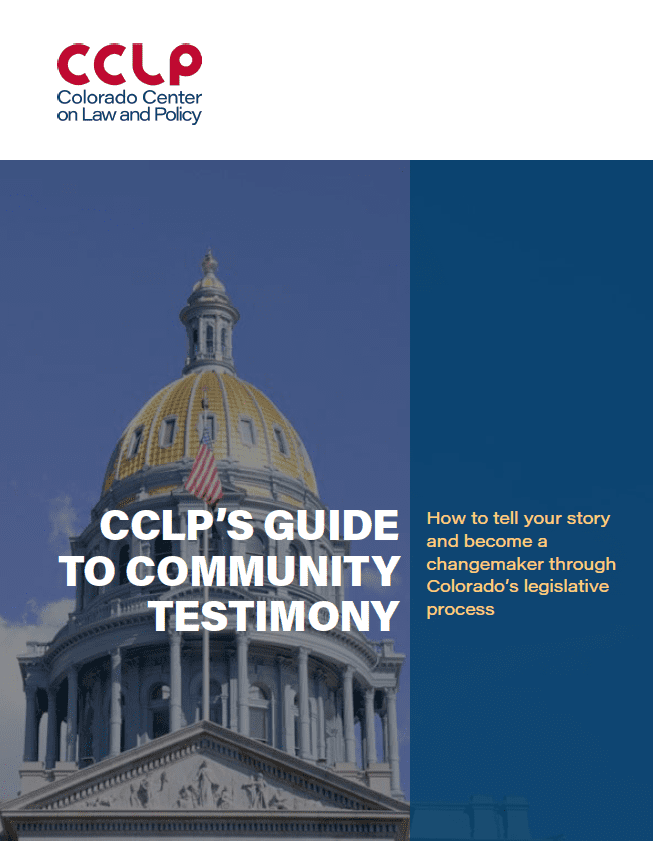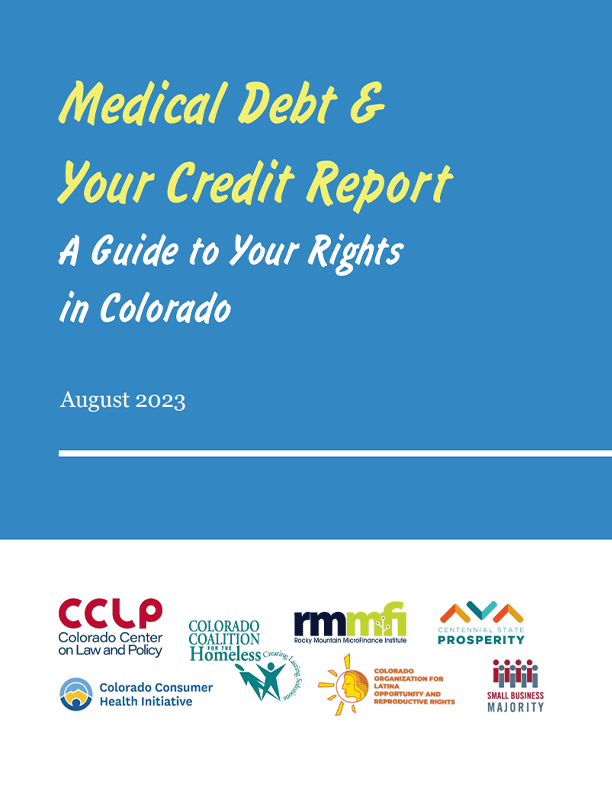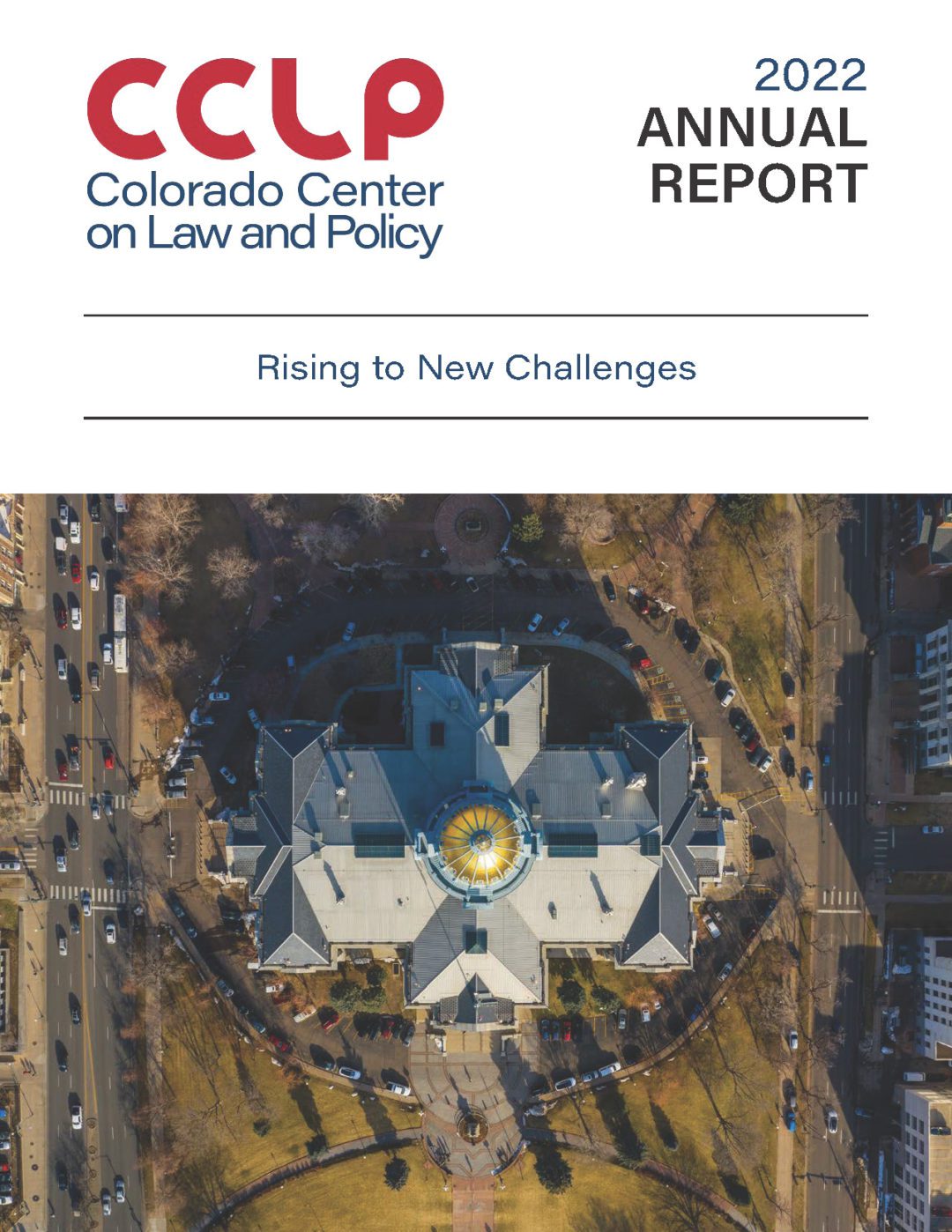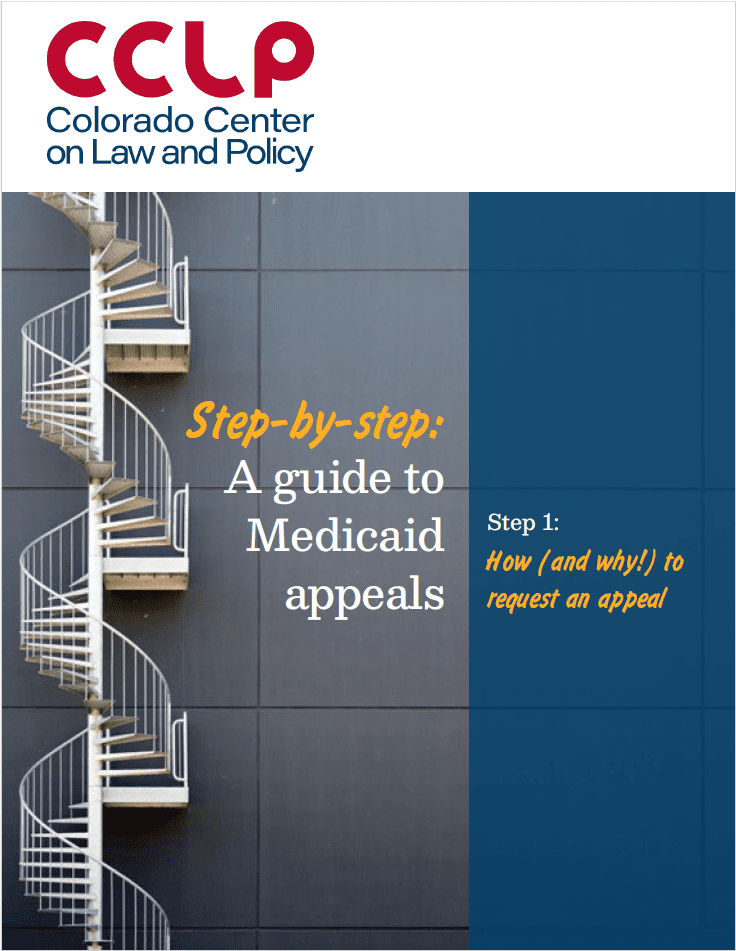Joint letter from executive director and board president
Change has been a dominant theme at CCLP and COFPI in recent years: the economic landscape, the budget picture, the political environment, focused attention on our issues, our offices, and even our own staff.
The ongoing budget crisis, federal health reform, and the economic recession have elevated our key issues, making our work more important now than ever before. We have seen new arrivals on our team, bittersweet departures, and arguably our most successful legislative session ever.
Our founding director, Maureen Farrell-Stevenson, bid us farewell as she embarked on a wonderful new opportunity with a national child advocacy organization. Her leadership and guidance over the last decade left CCLP in the strongest position possible.
As we march ahead in our tenth year, we can’t help but think back to the beginning of CCLP, with just a couple of staff members in a cramped office, and a firm belief in the mission of working toward justice and economic security for all Coloradans.
Since then, we’ve experienced tremendous growth in the capacity, the influence, and the results of CCLP’s work. What started with a few talented and passionate people has evolved into one of Colorado’s leading research and advocacy organizations.
In 2008, we came closer than ever before to getting an earned income tax credit through the legislature. We also worked with the Governor and state leaders to take more steps toward expanding health care coverage, and embarked on a statewide outreach campaign to highlight VisionKEI, the online Colorado Self-Sufficiency Standard calculator. We continued our watchdog role as well, monitoring the State’s compliance with the CBMS settlement agreement, and working with counties to make sure they deliver life-sustaining benefits to Coloradans in need. We helped the Amendment 59 coalition with online communications, canvassing, phone banks, and visibility efforts. And we joined other members of the Colorado C3 Roundtable in an historic voter education and mobilization effort in the final days of the election, successfully fighting against bad ballot initiatives like Amendments 46 and 47, which could have turned into an all-out assault on Coloradans.
In 2009, we worked to establish a permanent legislative task force on poverty reduction (HB09-1064), protect and lift certain restrictions on benefits for legal immigrants (SB09-266, HB09-1353), expand access to health care for children and low income Coloradans (HB09-1293), strengthen and expand unemployment insurance (SB09-247) and improve foreclosure assistance for homeowners (HB09-1276). COFPI led a large coalition in repealing an outdated budget formula, the 6% Arveschoug-Bird provision, which has shackled Colorado’s ability to set budget priorities for nearly twenty years (SB09-228).
More recently, we have provided research, testimony, and technical support to the Commission on Long Term Fiscal Stability and the Economic Opportunity and Poverty Reduction Task Force. We have been a key member of a broad coalition dedicated to passing national health care reform, and in doing so published an innovative study on health care affordability. Our findings helped inform the current debate in Congress. We have fought tooth and nail to combat misguided budget cuts, while also providing balanced revenue solutions to help reverse the state’s fiscal crisis. We are also one of the key conveners for the Colorado Reform Roundtable, an unprecedented broad-based coalition of organizations focused on long-term fiscal and revenue reform.
We highlight these accomplishments to demonstrate that this work—our work—matters. It matters to an unemployed worker who got a few more checks in the mail to help pay the bills. It matters to a low-income child who can get the health care he or she needs. It matters to a working family faced with losing their home. And it matters to every family in Colorado struggling to make ends meet and working toward economic self-sufficiency.
Change does not come easily, and it does not happen by accident. It took the work of all of us, the coordination of our important coalition partners, and the tremendous support of all of you. As Martin Luther King, Jr. once said, “Human progress is neither automatic nor inevitable… Every step toward the goal of justice requires sacrifice, suffering, and struggle; the tireless exertions and passionate concern of dedicated individuals.”
At CCLP, we honor and thank all the dedicated individuals, including all of our generous donors, supporters, volunteers, and wonderful partners, that we are so fortunate to work with every day to make Colorado a better place.
Sincerely,









